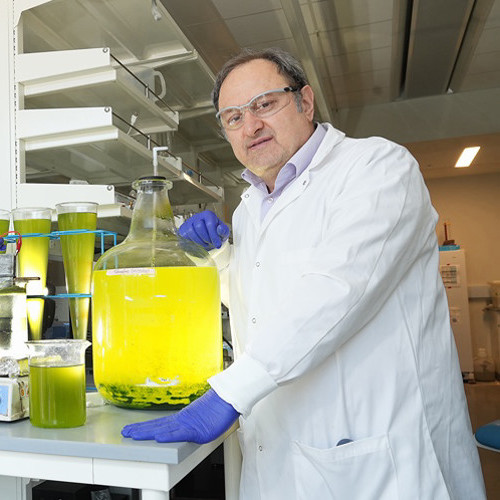NRES Student Announcements
NRES Office Hours (FPRD 101): Monday - Friday, 8:30 am - 4:30 pm when classes are in session
Dr. Bowling's Student Office Hours (FPRD 101): Tuesdays 1:30 pm - 3:30 pm
Academic Advisor: Mandy Chalk Marquardt - Schedule an appointment through Boiler Connect (link below) or email chalkm@purdue.edu.
Make an appointment with your advisor
Meet the NRES Staff
The NRES staff is here to help plan your courses for a successful journey at Purdue.
NRES StaffCurrent Students
- Students in NRES must complete the College of Agriculture requirements which can be found here.
- In addition, students must complete the NRES core, which lays a foundation for further study by including courses on wide-ranging topics such as organic chemistry, ecology, soil science, meteorology, environmental economics, and environmental policy, to name just a few.
- All NRES students will have hands-on education in environmental field skills including GIS.
- Additional science selectives (7-10 credits)
- Your NRES concentration (21 credits) involves selecting one of the six concentrations central to the NRES curriculum. Working closely with an academic advisor, you customize your upper-level courses to match your area of specialization after completing your first two years of study. This flexibility offers NRES majors a wide array of options.
- The unrestricted electives (12-16 credits) offer you the opportunity to pursue a second major or minor, delve deeper into courses within your NRES concentration, or undertake certification courses or additional environmental science classes. Moreover, they provide the flexibility to engage in extracurricular activities such as Band or ROTC, as well as opportunities for studying abroad.
- To see the most up to date requirements, please view the university’s catalog here.
NRES is unique, exciting, and interdisciplinary. With guidance from the NRES academic advisor, staff, and faculty, you will be able to customize your own degree program to fit your interests and career goals. NRES students learn about the latest research and ideas, earn prestigious awards and recognition, and pursue careers in a diversity of settings.
- Gain marketable skills through coursework, research, and internships
- Emphasis on critical, real-world tools like GIS
- Hands-on fieldwork
- Student collaborative space
- Close-knit program with faculty who are involved in your success and committed to mentoring you
- 40-hour Hazardous Waste Operator/Emergency Response Technician certification training
- Friendly and welcoming student community
- Student-led Environmental Science Club
- Optional speakers, tours, and field trips
- Study abroad
- Research and internships
During the spring semester, NRES offers 40-hour Hazardous Waste Operator/Emergency Response Technician Certification Training and HAZWOPER Renewal Certification Training for graduating and undergraduate students.
NRES Provides Abundant Career Choices and Opportunities
We are in an era of major concern for our environment with 'going green' movements, sustainability, alternative energy research, and the growth of environmental policy in the United States. As concern for our environment grows, opportunities for NRES graduates increase in state and federal agencies and private businesses involved in control technology, environmental compliance, waste minimization, environmental health and safety, remediation of contaminated sites, environmental law, and reclamation and remediation of disturbed lands.
Areas of Employment
- Business and Industry
- Non-Profits
- Governmental Agencies
Career Opportunities
USAJOBs.govPossible Career Choices
- Environmental Consultant
- Wetland Scientist
- Field Chemist
- Hydrologist
- Resource Economist
- Industrial Compliance Specialist
- Urban Project Coordinator
- Species Conservationist
- Wildlife Biologist
- Environmental Planner
- Radiation Safety Manager
- Soil Conservationist
Continued Education
- Environmental Law
- Graduate degrees in focused environmental specialty
- Education / Outreach
- Research
Click below to learn more about the Natural Resources and Environmental Science Minor
Natural Resources and Environmental Science Minor
Advising Resources
"As your academic advisor, I am looking forward to getting to know you better on a personal level; I enjoy listening to my students’ stories about their experiences. I also look forward to helping you design your individual academic program to best fit your career goals."
-Mandy Chalk Marquardt, NRES Academic Advisor
The Emerging Environmental Challenges concentration offers you a unique opportunity to determine a specific focus area you would like to study.
Please write one or two paragraphs forming a clear statement of the Emerging Environmental Challenge you are passionate about and how this “major” would be different from any other major on Purdue’s campus. We also ask that you compile a list of courses for the concentration (21 credits) that you feel provide the foundational knowledge and understanding you will need at graduation.
Your paragraphs should answer these questions:
- “What environmental area am I most passionate about?”
- “Why is this a unique major?”
- “How do these classes address this challenge?”
If you have already taken any classes you intend to count toward this concentration, be sure to include those in your list.
Once your request is received, the NRES co-director will evaluate your proposal and be in touch with you regarding approval and any potential adjustments to your course list.
Faculty affiliated with the Natural Resources and Environmental Science program represent a wide range of disciplines at Purdue. The following faculty members teach in the NRES program, provide research opportunities and mentor NRES students.
Students are required to meet with an NRES mentor, either the NRES Director or an affiliated faculty of the student’s choice once per year (Sophomores, Juniors & Seniors). This NRES Mentoring Form is to be downloaded, completed, and emailed to the mentor of your choice before your meeting. Faculty Mentor: Please email the completed form to the NRES advisor chalkm@purdue.edu . The email to Mandy Chalk Marquardt will serve as the mentor's signature. Student: Mentoring completion is required before receiving your PIN# for the upcoming fall semester.
NRES-Ambassador Page
A glimpse into the daily life of NRES students at Purdue University
NRES Ambassador BlogFeatured Story
Featured Story

Aquaculture production operations that help feed the world’s growing population also generate polluted wastewater that harms the environment. Four studies published by Purdue University scientists since last May document the feasibility of...
Read More